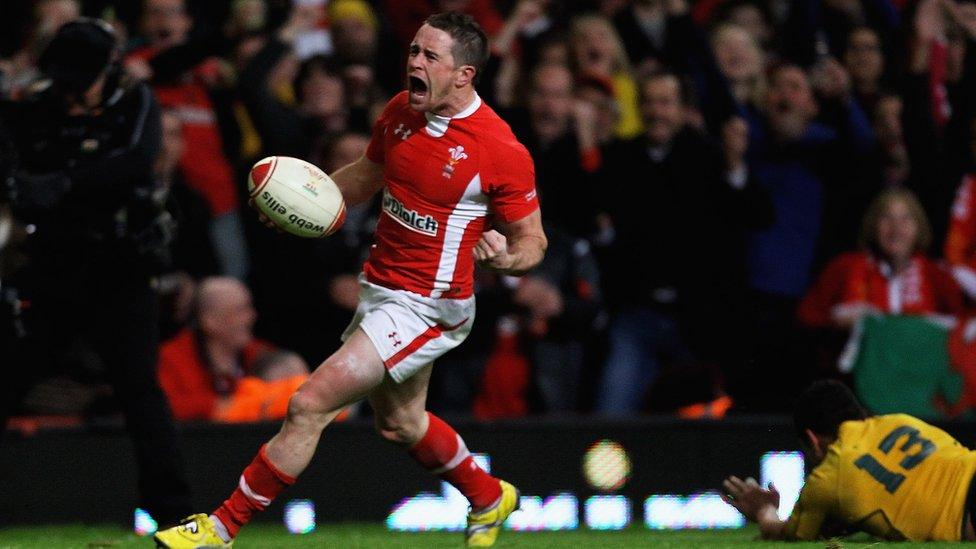Warren Gatland: Wales coach to use Six Nations to experiment
- Published
Six Nations 2018: Ireland win thriller against Wales in Dublin
Warren Gatland concedes that for Wales the 2018 Six Nations is already over... well at least their chance of winning.
Battered and squeezed in Dublin, a second successive Six Nations defeat means his side cannot, in his view, win the title and will experiment in their remaining games against Italy and France.
It is not how the New Zealander wanted to mark his 10th season in charge of Wales and it showed in his face in media conference following his side's 37-27 defeat.
Five tries conceded and a 10-point margin of victory tell their own story.
But in a match of remarkable statistics they don't tell the whole story.
'Squeezed to death'
"What they are good at doing is squeezing sides and they squeezed us today and got the better of us," was Gatland's assessment.
The statistics show. Ireland had 69% possession and spent three quarters of the game in Wales' half.
Why? Because Wales gave away penalties and Ireland - eventually - turned the statistical advantage into points.
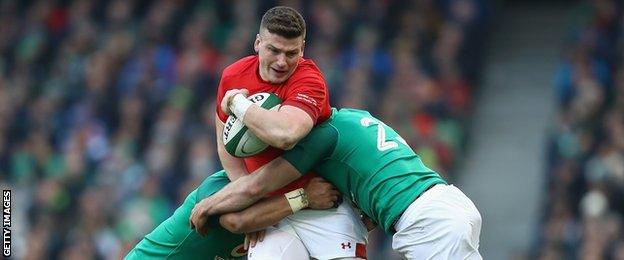
Scott Williams has made 53 Wales appearances
Against England Wales conceded two penalties in 80 minutes. They'd conceded more than that in the opening eight minutes in Dublin and eventually gave away nine.
"We've been (responsible for) our own demise really," added Gatland.
"I'm disappointed with the number of penalties we were giving away in the first half.
"We spoke about discipline and not allowing them opportunities to get penalties and kick for the touch to drive and to squeeze.
"They were very strong on their own throw and in our 22 and our goal-line defence wasn't as good as it needed to be."
A game mismanaged
Wales were ahead 13-5 after 30 minutes thanks to Leigh Halfpenny's flawless place-kicking and Johnny Sexton's unusually wayward boot.
Sexton missed two penalties and the conversion of Jacob Stockdale's try.
But Wales failed to preserve the lead and went in two points down after Bundi Aki's try from the last move of the half.
Twelve minutes and two tries later it was 27-13, Ireland had a bonus point in the bag and Wales were staring down the barrel of a hammering.
Yet they almost won the game. In fact, they were a matter of inches of potentially stealing a victory. It would have been a shameless theft.
Had Gareth Anscombe's pass found Justin Tipuric, Wales had a three-on one overlap with 60 metres to go to the Irish tryline. Instead Stockdale stretched, plucked the ball from the air and secured Ireland's success.
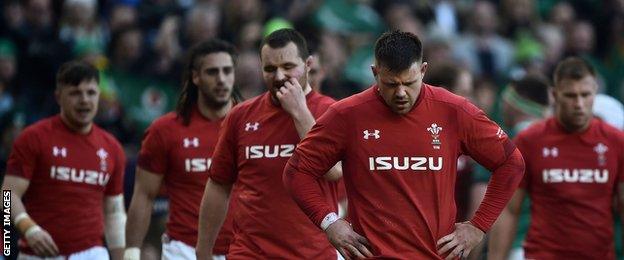
Ireland have now won 10 matches in a row after beating Wales
Key games lost
Wales' tournament was always going to hinge on the back-to-back matches at Twickenham and the Aviva Stadium.
They lost both with two contrasting performances - disciplined and unlucky in London, ill-disciplined and lucky to be in with a shout in Dublin.
Italy and France appear to present less tough challenges, and Gatland will make changes.
Bath's Taulupe Faletau should be available again and George North's second half display in Dublin suggest he could play a bigger part.
"We have two games at home and we want to finish the championship finish it well - finishing in that top three it's important for us as well and there's a chance to give some time to players in the squad - without making too many changes - to see where they are at this level and develop more depth in the squad," added the Kiwi.
Promise unfulfilled
But what an anti-climax after the opening weekend demolition of Scotland.
All that excitement and hope buried under the cold blue skies in Dublin and in the rain of Twickenham.
The strong finish which led to outstanding tries for Aaron Shingler and Steff Evans suggests there is still plenty of promise in the wide channels.
"We were trying to keep the ball and play a bit more expansive and when we did that and kept the ball we played some good rugby and scored points too," was Gatland's verdict.
It's a statement that neatly sums up Wales' problem in Dublin. Most of the time they did not have the ball.
And teams who don't have the ball usually lose.
So Ireland's their eyes are set on a Grand Slam while Wales are looking for a top three finish.
Forget the statistics, those are the facts that really sum-up the outcome of this match.
- Published24 February 2018
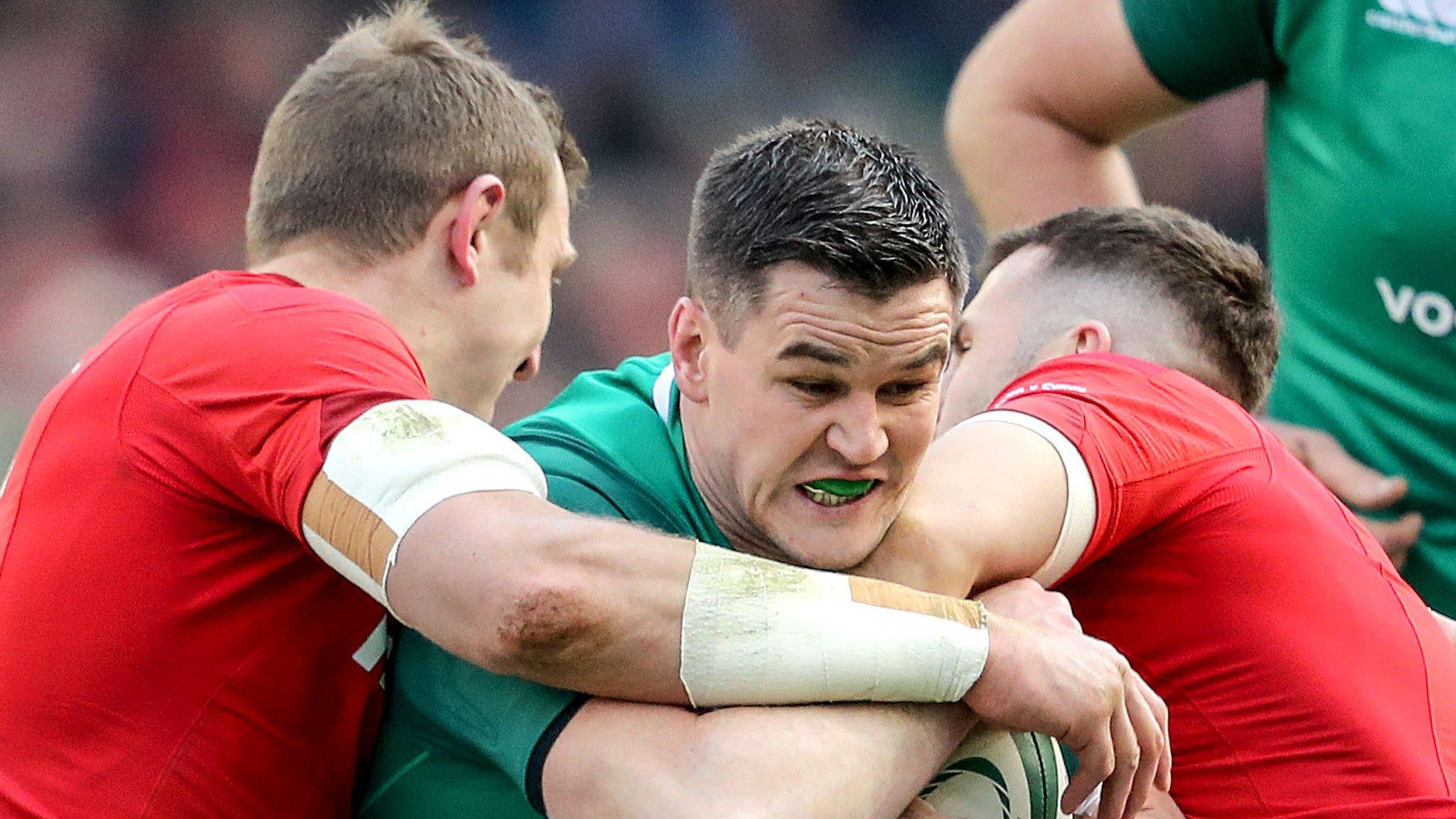
- Published24 February 2018
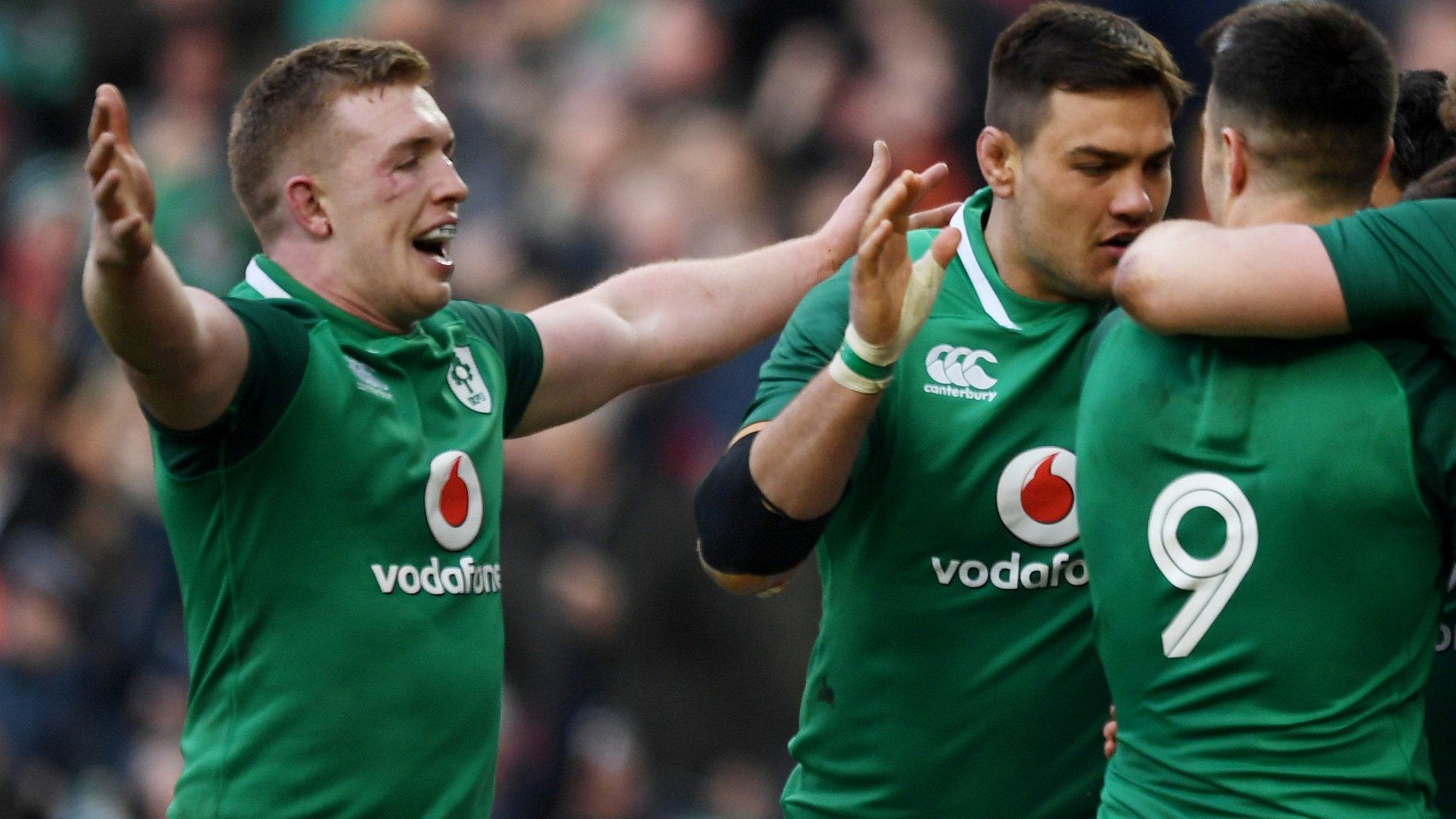
- Attribution
- Published24 February 2018
